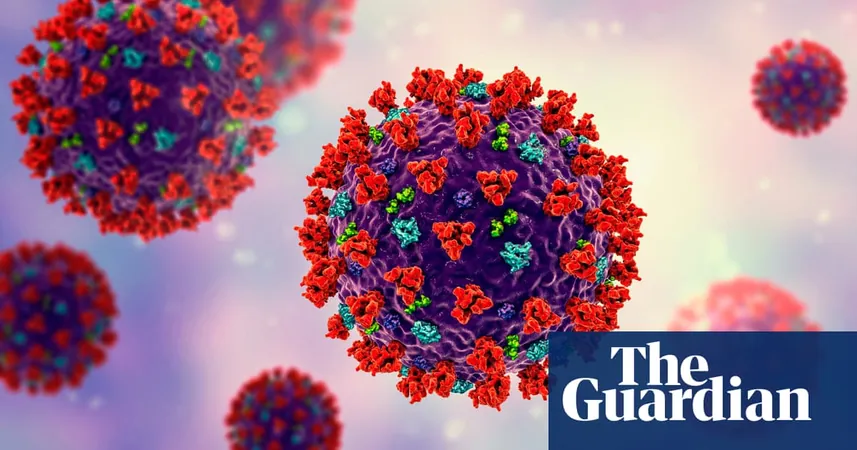
Shocking New Research Uncovers How Severe Covid Can Damage Your Brain!
2024-10-07
Author: Li
New research has revealed a startling link between severe Covid infections and inflammation in the brain’s “control center,” opening a new front in our understanding of the long-term effects of the virus. This inflammation could potentially explain why many patients are experiencing debilitating symptoms such as prolonged breathlessness, fatigue, and anxiety long after their initial recovery.
A detailed examination using high-resolution MRI scans of 30 individuals hospitalized due to severe Covid before vaccines became widely available found significant signs of inflammation in the brainstem. This small but essential structure is responsible for regulating critical bodily functions like breathing, heart rate, and blood pressure.
The findings indicate that severe Covid can trigger an immune response leading to inflammation in the brainstem. The lingering damage may manifest as troublesome symptoms that persist for months after patients leave the hospital. "Seeing abnormalities in the parts of the brain related to breathing strongly suggests that persistent symptoms are indeed a consequence of brainstem inflammation after a Covid-19 infection," stated Dr. Catarina Rua, the leading neuroscientist behind the study from the University of Cambridge.
Interestingly, this research began before the emergence of what we now know as long Covid—a chronic condition that is estimated to affect around two million people in England and Scotland, and tens of millions worldwide. Many individuals suffering from long Covid report similar symptoms such as breathlessness and fatigue, hinting that brain inflammation could also play a role in these ongoing issues.
"We didn’t specifically study long Covid patients, but their experiences of breathlessness and fatigue align with those of the severely affected individuals we examined six months post-hospitalization," Dr. Rua added, raising the question of whether long Covid patients may also exhibit brainstem changes.
In an innovative approach, Rua and her colleagues utilized powerful 7 Tesla MRI scanners to examine the brains of the Covid patients. The detailed imaging revealed inflammation and microstructural abnormalities in brainstem tissue, corroborating the hypothesis that severe infections may lead to notable brain damage. All participants had been hospitalized during the early days of the pandemic, providing a critical snapshot prior to the widespread introduction of vaccines.
What’s more alarming is that the research indicated visible abnormalities associated with inflammation in various regions of the brainstem, with damage persisting long after initial recovery—evident even six months later. The implications of this are far-reaching, as patients with significant brainstem inflammation reported not only physical symptoms but also heightened levels of depression and anxiety.
As Professor Paul Mullins from the University of Bangor commented, “While this study does not definitively identify the causes of long Covid, it does highlight a potential culprit for some reported symptoms.” Although the research does not present clear treatment options for long Covid, it emphasizes the importance of mitigating inflammatory responses during the initial Covid infection.
Given the profound implications of these findings, medical professionals and researchers are now urged to consider proactive strategies that could minimize inflammation during infection. As the global community grapples with the pandemic’s aftermath, this revelations offer a glimpse of hope in understanding and addressing long-term health consequences faced by millions.
Could this shocking research hold the key to unraveling the mysteries of long Covid? Stay tuned as we continue to bring you the latest in scientific discoveries that affect us all!




 Brasil (PT)
Brasil (PT)
 Canada (EN)
Canada (EN)
 Chile (ES)
Chile (ES)
 España (ES)
España (ES)
 France (FR)
France (FR)
 Hong Kong (EN)
Hong Kong (EN)
 Italia (IT)
Italia (IT)
 日本 (JA)
日本 (JA)
 Magyarország (HU)
Magyarország (HU)
 Norge (NO)
Norge (NO)
 Polska (PL)
Polska (PL)
 Schweiz (DE)
Schweiz (DE)
 Singapore (EN)
Singapore (EN)
 Sverige (SV)
Sverige (SV)
 Suomi (FI)
Suomi (FI)
 Türkiye (TR)
Türkiye (TR)